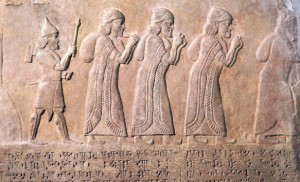10 Books
Beth and I have taken a short break from our 10 top 10 lists in order to spend some time with family. Today we are on list #6, which looks at the most influential books for us. Many of the concepts raised in these books will be revisited with our final blog post, which will examine the 10 ideas that define us as people. I have listed them in a way that illustrates how each builds on the others.
- Is there a text in this class?, Stanley Fish – This book examines the nature of truth as it relates to the authority of texts. As you will see, many of the books that follow rely on an interpretation of scripture to direct a community to action. Fish provides a framework for understanding how interpretive communities shape truth.

- Nature of Doctrine, George Lindbeck – Whereas Fish looks as the authority of texts, Lindbeck looks at the nature of religion to determine how they practically function. It is his conclusion that religion is like language and culture in that it explains the world around us, but it also helps us experience it.

- Life in Biblical Israel, Philip King and Lawrence Stager – Once we have discussed the role of community, religions and texts, it is essentially we understand the communities of Scripture if we are going to allow it to shape our lives. This book is approachable and practical as it outlines the world from which the Old Testament was born. Concepts such as kinsman redeemer and house of the father unlock amazing depth in the Hebrew Scriptures.

- New Testament and the People of God, N.T. Wright – No other theologian / historian has shaped my understanding of Scripture more than N.T. Wright. He does an excellent job of allowing the historical setting to inform a reader’s understanding of Scripture. He is a prolific writer, but this book in particular has been instrumental in shaping my understanding of the world of the New Testament.

- Prophetic Imagination, Walter Brueggemann – Once the world of scripture is established, we must understand how that affects the modern people of God. Brueggemann (my favorite OT scholar) outlines the role of the prophet in projecting a world in line with God’s will. Sometimes it requires critisizing an existing establishment, and at other times it requires energizing a new possibility. I always try to keep both of these sides in tension in my own life.

- Challenge of Jesus, N.T. Wright – Whereas Brueggemann outlines the implications of the OT prophet, in this book Wright outlines the implications of the person of Jesus. By showing Jesus in his historical context he allows the reader to grasp the importance of the Messiah beyond simply “personal salvation.”

- Resident Aliens, Stanley Hauerwas – After understanding the role community plays in shaping an understanding of truth, and then exploring the implications of the communities of scripture, Hauerwas explores what it means for Christians today to live as a community wherein we are in the world but not a part of it — living in a colony of hope.

- The Politics of Jesus, John Howard Yoder – I have already confessed that deep down I am a Mennonite. I have the utmost respect for people who are consistent in their views of the world, and practical in their faith. This book captures Yoder’s approach to understanding Christianity by outlining a way of life that the modern people of God can follow that is consistent with the person of Jesus.

- Imitation of Christ, Thomas à Kempis – Moving away abstract and into the practical aspect of being a Christian, I most often turn to the tested words of Thomas à Kempis. This is one of the most read texts of all time. Since we are talking about books today, I will include this quote from him: “At the Day of Judgment, we shall not be asked what we have read, but what we have done.”

- Walden, Henry David Thoreau – I end with the timeless work of Henry David Thoreau. While his existentialist thought may seem out of line in light of the previous 9 pieces, for me it is the culmination of the list because in the pages of this book I have always found the honesty and connectedness to the world that is necessary to live daily. It was Thoreau who said “The mass of men lead lives of quiet desperation,” and it is he who provides the most poignant commentary on my life as I flip through the pages of his works.

